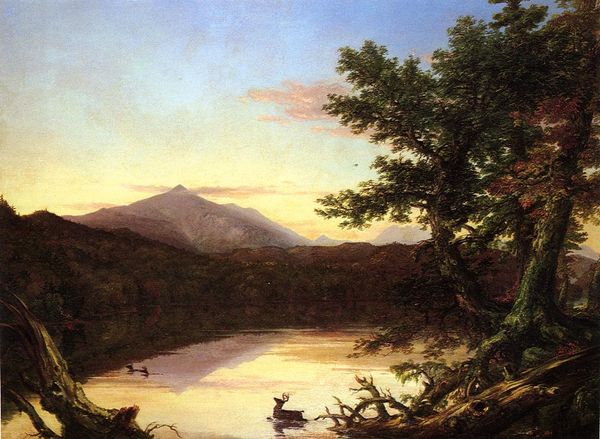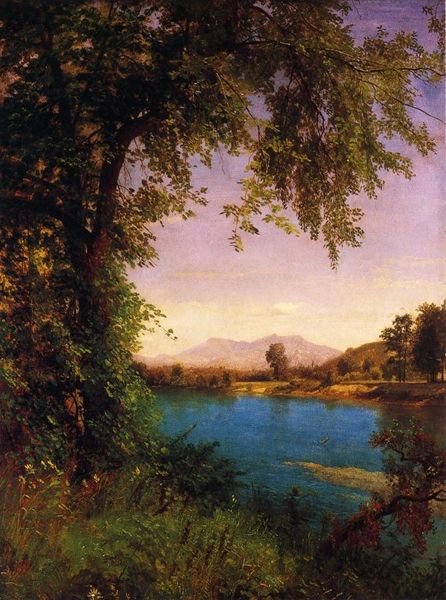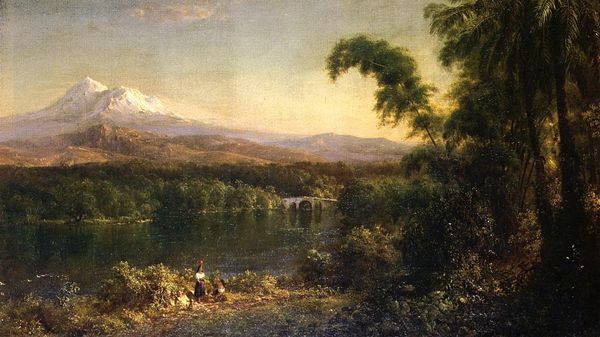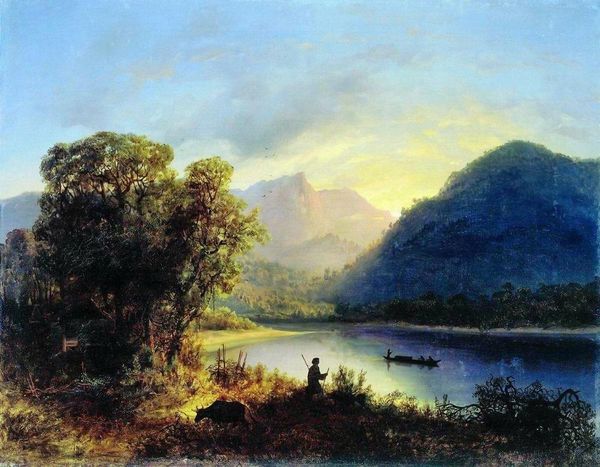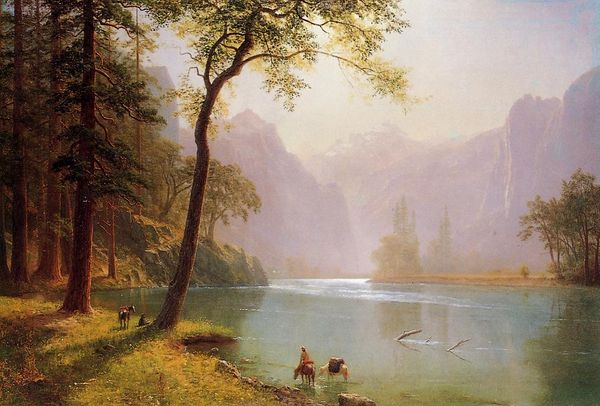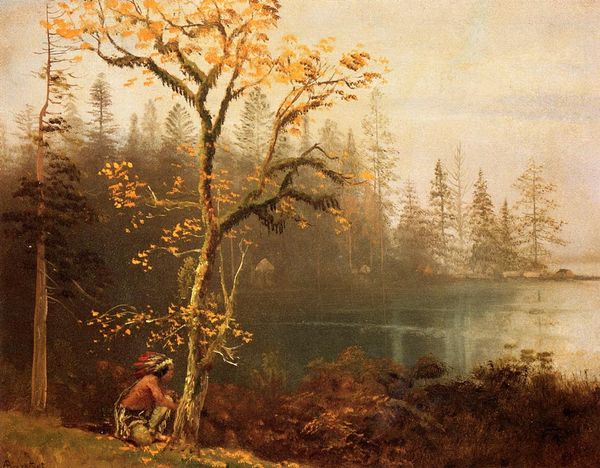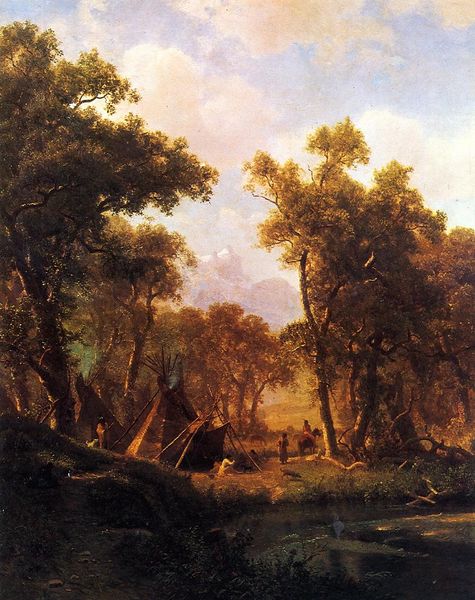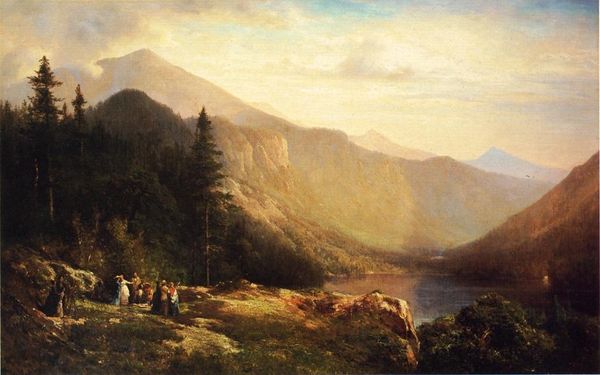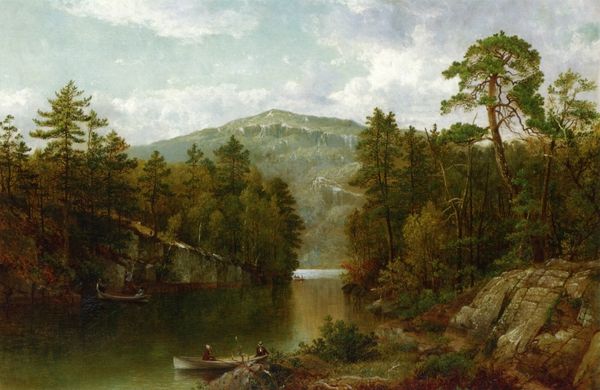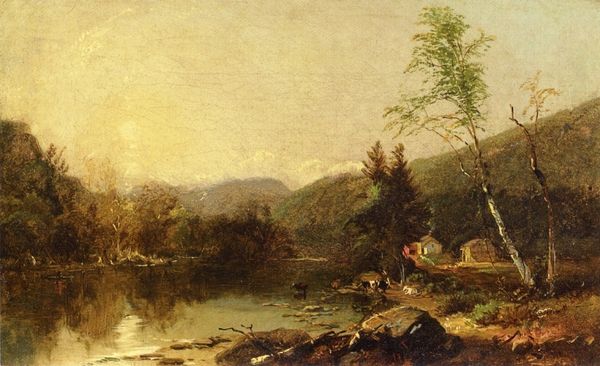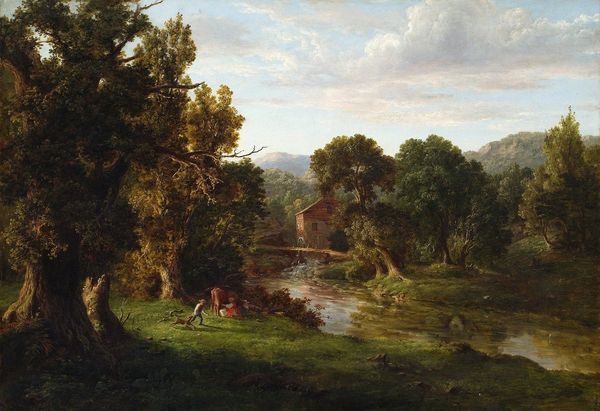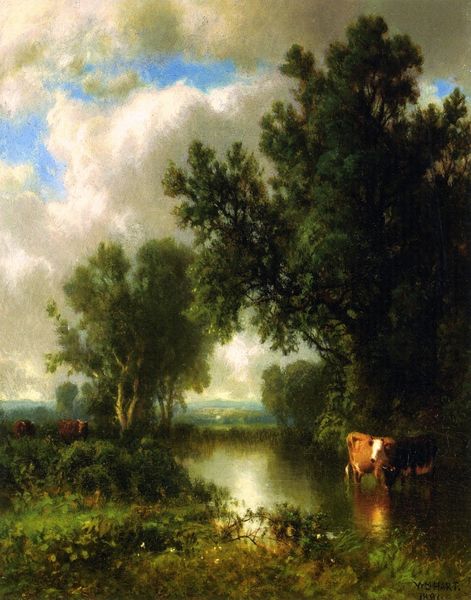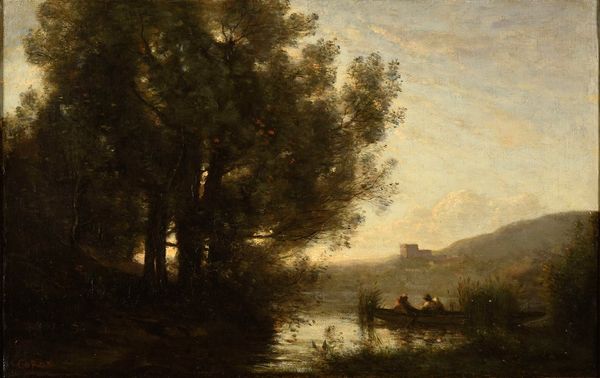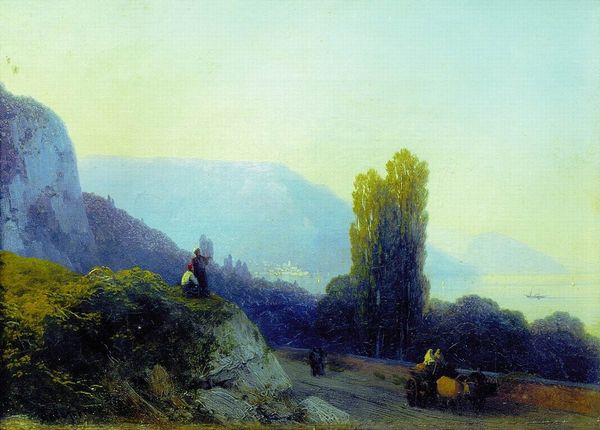
Copyright: Public domain
Curator: This is Thomas Hill's "Fishing Party in the Mountains," painted in 1872. It's an oil painting, and a pretty classic example of the Hudson River School style. Editor: My first thought? It’s incredibly… wistful. The light is soft, the mountains are dreamy, and everyone seems to be enjoying some peaceful leisure time. A total contrast with the capitalist realism we’re used to! Curator: Hill was all about capturing the grandeur of the American West. It was his bread and butter. Though here we have more of an Eastern, Catskills vibe, perhaps. He often painted plein-air studies that he would bring back to his studio to create his grander paintings. There is a clear connection between the two. Editor: Plein-air and *then* to the studio… interesting! You know, it speaks to how deeply entwined landscape painting was with the colonial project. Like, here are these "untouched" lands, available for leisure and resource extraction. The fishing party isn't just idyllic; it is part of this narrative of manifest destiny, this taming and appropriation of the landscape. Curator: Wow. That’s a heavy take for a Sunday afternoon fishing trip! But you're not wrong about the narrative of control at the base of so much romanticist landscapes. For me, I can get past that reading and embrace a longing. Editor: Oh, I absolutely see the longing! Hill paints this landscape like a promised land, ripe with potential and open for…well, exploitation, honestly. It mirrors how the United States saw itself. Think about how it uses nature and a certain constructed history to support a kind of myth making. Curator: Right. And you see this painting not just as pretty scenery but also, consciously or unconsciously, a part of the justifications for westward expansion and the displacement of indigenous people. Editor: Exactly. By showcasing an Edenic version of "America," it obscures the violence and injustice baked into its founding. It begs the question: whose paradise is this, really? Curator: That gives me much to chew on next time I feel an impulse toward idyllic escapism. I can feel the beauty and acknowledge the troubling aspects as well. Thanks! Editor: Absolutely. Art's never just 'pretty,' is it? Always a lens to examine bigger truths and more complex questions.
Comments
No comments
Be the first to comment and join the conversation on the ultimate creative platform.
